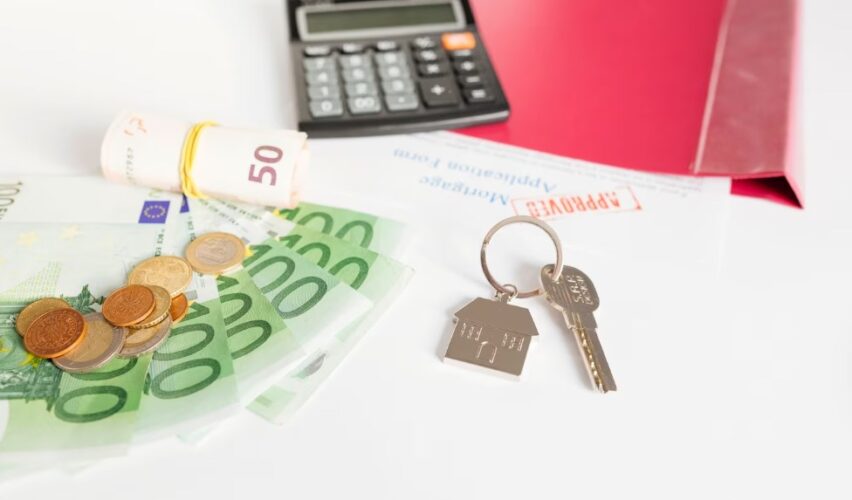This composition delves deep into the fiscal nuances associated with real estate in the Netherlands. It provides vital insights crucial for both overseas and local investors eyeing the Dutch real estate sector. Whether the investment is for personal enjoyment or business endeavors, a thorough understanding of these fiscal nuances is imperative.
Expert knowledge in the realm of Dutch real estate fiscal regulations is crucial. This article aims to shed light on various financial obligations, potential exemptions, and strategies for fiscal optimization, all of which are essential for making well-informed decisions in the ever-evolving landscape of Dutch real estate.
Comprehensive Guide to Dutch Real Estate Fiscal Dynamics
Individuals and business entities from abroad have the opportunity to invest in Dutch real estate, be it for personal or commercial purposes. A deep understanding of the fiscal system surrounding real estate in the Netherlands is fundamental for such investments. This guide offers specialized insights into a variety of financial responsibilities, particularly those linked to the transition of real estate ownership.
Annual Fiscal Responsibilities for Dutch Real Estate
In the Netherlands, real estate comes with an annual financial obligation, administered by local governing bodies. This obligation is a fraction of the real estate’s estimated market value, officially known as the WOZ value. This value is determined on an annual basis by local authorities.
- The fiscal responsibility is divided into two main categories: one for those who own real estate and another for those who utilize properties owned by someone else. The deadline for these financial obligations is typically January 1st of each year;
- For investors who are not residents, the financial obligation is commonly around 1.2% of the WOZ value, after considering any relevant loans. This percentage may vary across different localities and can change annually depending on market trends and fiscal policy adjustments.
The WOZ value plays a critical role in determining these financial responsibilities and is aligned with the Valuation of Immovable Property Act. Local municipalities reassess this value each year, taking into account the latest market developments and changes in fiscal legislation.
Diverse Financial Commitments in Acquiring Dutch Real Estate
Securing real estate in the Netherlands brings with it a range of financial commitments beyond the primary obligations:
- Conveyance Levy: Typically a fixed rate, around 2% of the real estate’s worth;
- Initial Agreement Deposit: Often set at 10% of the agreed selling price;
- Contractual Transfer Levy: Usually around 0.3% of the acquisition price;
- Financing Charges: Generally near 1% of the acquisition price;
- Contractual Financing Fee: Roughly 0.15% of the acquisition price, potentially deductible;
- Brokerage Fee: Approximately 2% of the real estate’s market value;
- Valuation Fee: Typically 0.2% of the acquisition price, but negotiable.
Fiscal Reporting for Real Estate in the Netherlands
Owners of real estate in the Netherlands, whether local or international, must complete fiscal reporting. This process allows non-residents to apply for reductions on various charges. The Dutch fiscal structure incorporates a ‘box system’, divided as follows:
- Box 1: Applicable to properties used as primary residences, allowing deductions for mortgage interest, legal fees, and costs related to mortgage acquisition;
- Box 3: Relevant for additional properties, where fiscal charges are based on the WOZ value, minus any mortgage debts.
All acquired properties from January 1st onwards must be included in that year’s fiscal report. Dutch nationals with overseas real estate must also report these in their Dutch fiscal declarations, with potential relief available under double taxation agreements.
For personalized guidance in fiscal declaration preparation and business auditing services, specialized accounting firms in the Netherlands offer extensive support.
Expanding Fiscal Responsibilities for Property Holders in the Netherlands
Holders of properties in the Netherlands, encompassing both living spaces and commercial assets, face a spectrum of additional fiscal charges related to property upkeep and services. These charges cover:
- Refuse Collection Charge: This is determined by the number of occupants in a household and varies depending on the municipality;
- Drainage and Water Board Levy: Aimed at supporting the upkeep of local drainage systems;
- Water Treatment Charge: Imposed for the services related to purifying water;
- Environmental Charge: Applicable to properties that are not connected to the central sewage network;
- Canine Levy: Implemented in certain areas as a charge for dog owners, though it has been discontinued in Amsterdam since 2016.
Fiscal Declarations for Real Estate in the Netherlands
Owners of real estate in the Netherlands, both from within the country and abroad, are required to submit annual fiscal declarations. This procedure enables international citizens to apply for reductions on specific charges. The Dutch fiscal framework is structured into a categorized system known as the ‘box system’, detailed as follows:
- Box 1: Pertains to properties used as main residences, offering the possibility of deductions for mortgage interest, legal costs, and expenses related to securing a mortgage;
- Box 3: Applies to secondary properties, where fiscal calculations are based on the WOZ value, adjusted for any outstanding mortgage amounts.
All real estate acquisitions from January 1st onward need to be included in the fiscal declaration for that year. Dutch nationals with overseas properties are also required to report these in their Dutch declarations, with potential alleviations available under international double taxation agreements.
Recent Modifications in Dutch Real Estate Fiscal Policies
In 2020, the Dutch fiscal framework for real estate underwent notable revisions, impacting both primary residences and investment properties. These alterations include:
- For real estate valued below €1,090,000, the fiscal charge is calculated at 0.60% of the WOZ value;
- For properties above this valuation limit, the charge is 2.35% of the WOZ value;
- The maximum rate for mortgage interest deduction in 2020 was set at 49.50%, with an additional adjustment of 3.50%.
Due to regular updates in the box system, it’s recommended that property owners seek professional fiscal advisory services for accurate fiscal declaration preparation and to fully benefit from available fiscal advantages.
Trends in Residential Real Estate Pricing in the Netherlands
The residential real estate market in the Netherlands has experienced a notable escalation in prices, driven by increasing demand. Some key statistics reflecting this trend are:
- In Amsterdam, there was a 6.23% rise in residential property values in the first quarter of 2019;
- The average cost of a residence in Amsterdam is currently about €472,375;
- Across the nation, there was an average upswing of 8.31% in property values;
- The national average price for properties is approximately €301,279;
- The costs for various types of homes differ, with apartments averaging €264,409, row houses at €278,167, detached homes around €437,633, and semi-detached homes averaging €319,663.
Additionally, other charges like banking closing fees and legal costs associated with mortgage registration are deductible.
Onroerendezaakbelasting (OZB) in the Netherlands
The Onroerendezaakbelasting (OZB), a compulsory fiscal charge on real estate, applies to most property holders, including those with additional structures like garages and storage units. This levy is a set percentage of the property’s officially assessed value (WOZ value), highlighting the importance of precise property valuation for fiscal purposes.
Navigating Fiscal Liabilities for Properties in the Netherlands
In the Netherlands, the fiscal liability for properties depends on whether one is an owner or user of immovable assets. These charges are consolidated annually in the Gecombineerde aanslag (combined municipal fiscal bill), encompassing diverse fiscal categories.
- Owner’s Fiscal Responsibility: Registered owners in the Kadaster land registry for residences or other immovable assets bear the responsibility for the owner’s fiscal charges;
- User’s Fiscal Responsibility: Users of business spaces, garages, and similar facilities are subject to user-related fiscal charges. However, residential property tenants are exempt;
- Combined Fiscal Responsibility: If an individual holds both ownership and usage rights of a building or space, they incur both owner and user-related fiscal charges.
Adjustments for Partial Ownership or Usage Duration
The fiscal responsibility adjusts in scenarios of partial ownership or usage duration:
- For Sellers: Should a property be sold midway through the year, arrangements are usually facilitated by the civil-law notary or real estate agent to settle any owner-related fiscal charges already paid, with the new owners;
- For Tenants: Tenants who terminate their lease mid-year will not receive a refund for fiscal charges paid but are exempt from future payments for the rest of that year.
Fiscal Charges for Properties in Amsterdam
In Amsterdam, the financial obligations for property holders are determined by two primary elements:
- Assessed Market Value (WOZ Value): This refers to the officially assessed market worth of the property, with January 1st serving as the pivotal date for assessment;
- Levy Rates: These are fixed proportions of the WOZ value and differ depending on the type of property.
Presently, the rates are as follows:
- Residential Property Holders: 0.0431% of the WOZ value;
- Commercial Property Holders: 0.1911% of the WOZ value;
- Tenants or Users of Commercial Spaces: 0.1370% of the WOZ value;
- Forecasts for 2024 suggest a minor variation in these rates.
Conclusion: Mastering Fiscal Compliance in Dutch Real Estate
Mastering the fiscal framework in the Netherlands, especially for real estate, requires an in-depth understanding of various financial obligations and rates. This knowledge is essential for property owners, users, or investors to fulfill their fiscal duties, which arise from property ownership, usage, transfer of property rights, or equity in real estate entities, as well as any changes in property status over time.
Given the ever-changing nature of fiscal regulations, especially concerning transfer levies and local municipal charges, staying informed and seeking expert fiscal guidance is crucial for ensuring precise compliance and maximizing financial efficiency. A comprehensive understanding of the fiscal system in the Dutch real estate sector is indispensable for sound financial planning and strategic investment decisions within this market.




